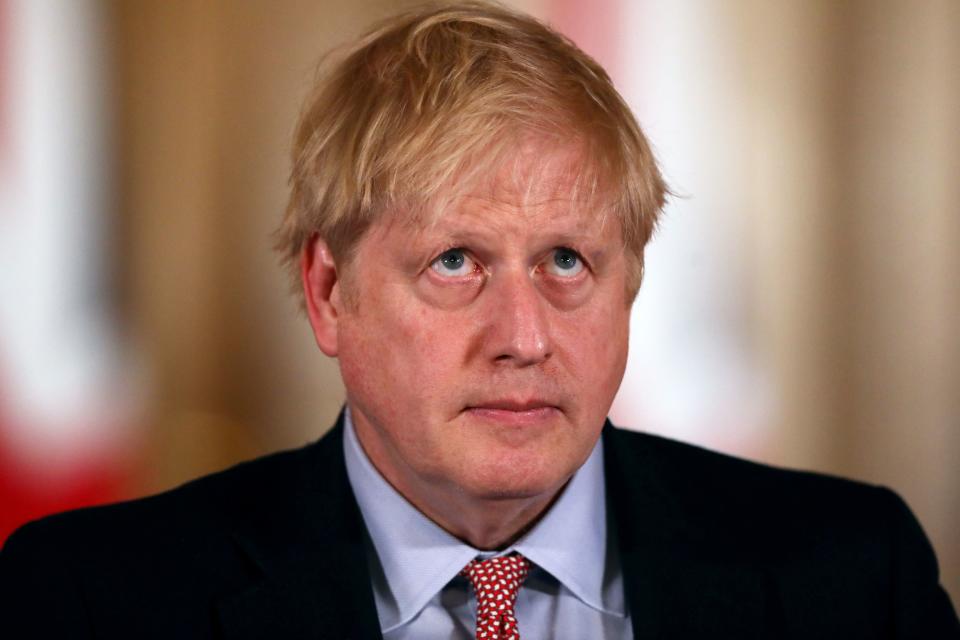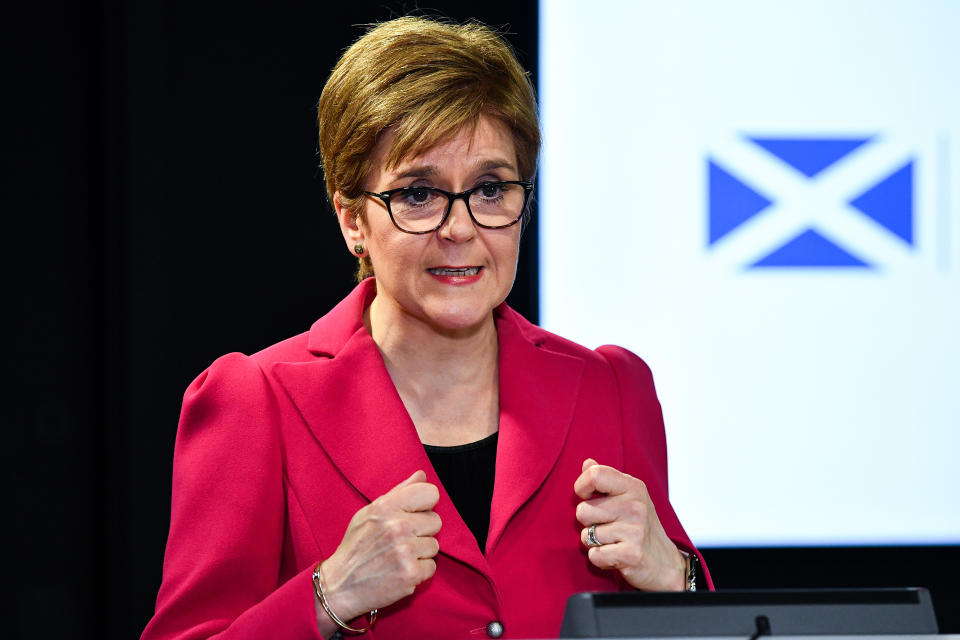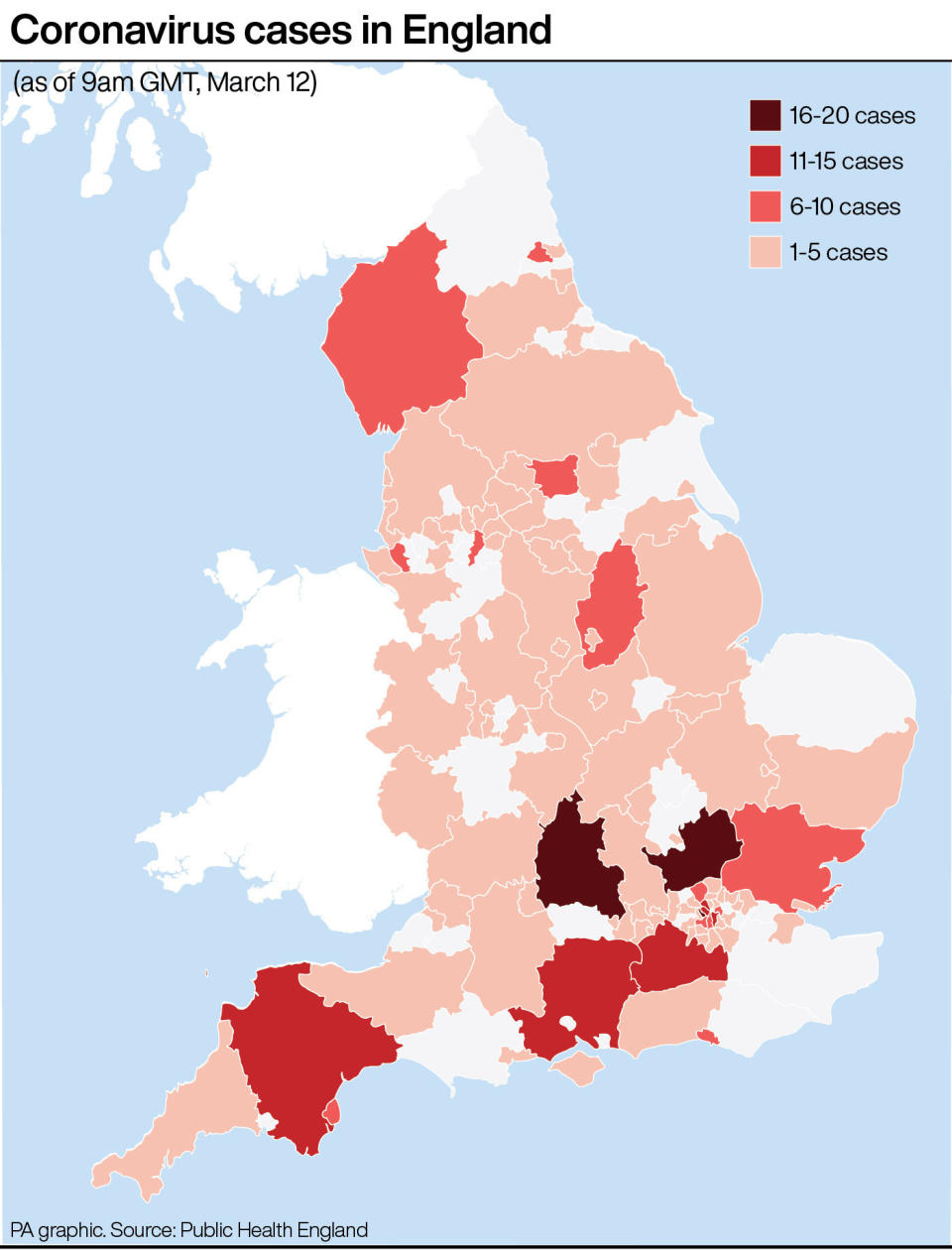Coronavirus: The five most important things that happened on Thursday

Coronavirus continued to spread across the UK on Thursday, as the government ramped up its response.
Here are the five most important things that happened.
Johnson warns of ‘many more’ deaths...
Boris Johnson used a Downing Street press conference to warn “many more families are going to lose loved ones before their time” due to coronavirus.
The prime minister said the outbreak was the “worst public health crisis for a generation” in Number 10’s most dire coronavirus warning so far.
...as government escalates its response
The UK has officially escalated its coronavirus response to the “delay” phase, with the government now telling people who suffer any symptoms to stay at home for seven days.
Delay is the second of four phases in the government’s coronavirus action plan. It focuses on slowing the spread across the country and pushing it away from the winter season, when the impact is higher.
Latest coronavirus news, updates and advice
Live: Follow all the latest updates from the UK and around the world
Fact-checker: The number of Covid-19 cases in your local area
Explained: Symptoms, latest advice and how it compares to the flu
“If we delay the peak even by a few weeks,” Johnson said, “our NHS will be in a stronger state as the weather improves and fewer people suffer respiratory diseases.”
As well as saying people showing symptoms – a persistent cough or fever – should stay at home for a week, Johnson urged people over 70 not to go on cruise ships, and for schools not to take pupils on international trips.
However, there are currently no plans to cancel large-scale events such as sports fixtures, or close schools.
UK sees biggest day-to-day increase in cases
The Department of Health said the number of confirmed cases, as of 9am on Thursday, was 590.
This was a jump of 134 from Wednesday’s figure of 456, by far the largest day-on-day increase.
UPDATE on coronavirus (#COVID19) testing in the UK:
As of 9am 12 March 2020, a total of 29,764 people have been tested:
29,174 negative
590 positive
8 patients who tested positive for coronavirus have sadly died.
The digital dashboard will be updated later today. pic.twitter.com/6hPeNlUU7f— Department of Health and Social Care (@DHSCgovuk) March 12, 2020
The previous highest daily increase was 83, which occurred between Tuesday and Wednesday.
One week ago today, the total number of cases stood at 115.
Meanwhile, two more people died, taking the death toll to 10. The patients were at Barking, Havering and Redbridge University Trust and Imperial College Healthcare NHS Trust.
Scotland bans large gatherings
First minister Nicola Sturgeon cancelled gatherings of more than 500 people to protect frontline services.
The ban will come into force on Monday.
She said a clear definition will be provided, but the advice relates to gatherings that potentially have an impact on emergency services.

Sturgeon told a press conference at the Scottish government headquarters in Edinburgh she would not consider church services in that way, but football or rugby matches – due to their size and need for dedicated ambulance services – should be reconsidered.
She said: “Progressively, the next few weeks are going to have services under acute pressure. I feel an obligation to remove as many unnecessary burdens as I can.”
Patients ‘very unlikely’ to get coronavirus again
Some good news: people who recover from coronavirus are “very unlikely” to contract it again.
Jennie Harries, deputy chief medical officer for England, told BBC News: “It [the virus] seems pretty stable at the moment, that means it is not changing very much.

“That means that once somebody’s had it, they should be building antibodies to it, so if they were re-exposed to it once they’ve had it in this current cycle, very unlikely that they would get it again. Not possible.
“As we look forward into future years we will have to see how the virus behaves, just like we do with flu.”

 Yahoo Finance
Yahoo Finance 
